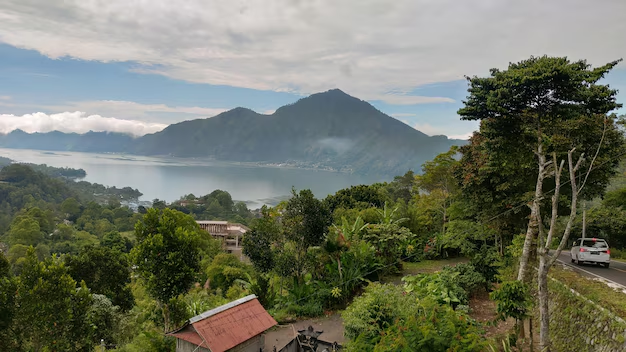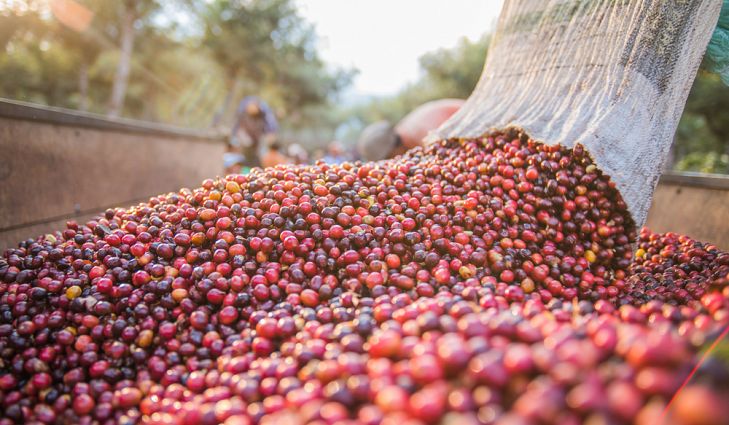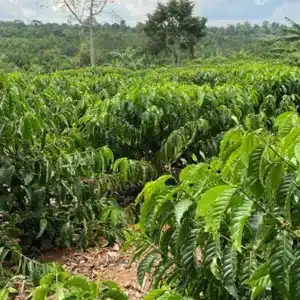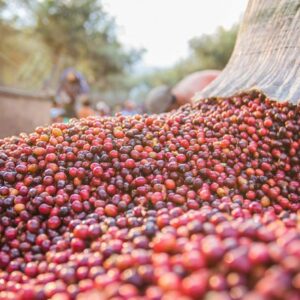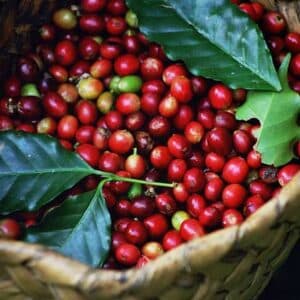Uganda – Sironko Washing Station RFA
Caramel | Chocolate | Fruity
About This Coffee
Located at 1,250 meters above sea level, the Sironko Coffee Washing Station processes cherries from farms as high as 1,850 meters on the slopes of Mt. Elgon. This extinct volcano, one of Africa’s oldest, spans the Uganda-Kenya border and supports thousands of smallholder farmers cultivating Arabica coffee between 1,200 and 2,200 meters. The region’s rich volcanic soil, abundant rainfall, high altitude, and steady sunshine create ideal conditions for exceptional coffee quality.
At Sironko, only selectively hand-picked cherries are accepted and sorted through flotation, which separates them into three grades based on density. The highest-quality cherries are depulped, demucilaged, and dried using a controlled mechanical process. Farmers are trained to compost discarded pulp, while treated wastewater is repurposed for local agriculture. A structured drying system removes excess moisture in a seven-hour pre-drying phase before continuing for 21 to 48 hours until the coffee reaches an optimal 12% moisture content, ensuring consistency and preserving cup quality.
| Origin | Uganda |
|---|---|
| Region | Sironko, Mount Elgon |
| Altitude | 1,250m – 1,850m |
| Producer Type | Washing Station |
| Farm Structure | Various Smallholder Farmers |
| Wet Mill | Sironko Budadiri |
| Processing Method | Washed |
| Processing Details | Mechanically depulped, demucilaged, and dried using controlled mechanical driers |
|---|---|
| Harvest Period | 2023/24 |
| Varietals | SL14, SL28, SL34, Nyasaland, KP142, KP630 |
| Plant Species | Arabica |
| Post-Harvest Handling | Raised bed drying, controlled fermentation, moisture-regulated storage |
|---|---|
| Bag Size | 60 KG |
| Bag Type | Grain Pro / Ecotact |
| Certifications | Rainforest Alliance Certified (IP) |

Uganda’s Coffee Journey
Uganda’s coffee heritage is deeply woven into its landscape and culture. For centuries, wild robusta trees flourished in the country’s rainforests, where local communities chewed the beans for energy and used them in rituals. Coffee’s commercial journey began under British colonial rule, with Arabica introduced to the highlands and robusta cultivated on a larger scale. After independence in 1962, coffee quickly became Uganda’s most valuable export, though political and economic instability posed challenges. A resurgence in the 1990s, fueled by investment and modernization, helped Uganda establish itself as one of Africa’s top coffee producers. Today, the country is known for its rich, full-bodied robusta and high-altitude Arabica, both gaining recognition in the global specialty coffee market.
Cultivating Coffee in Uganda
Uganda’s diverse landscape offers excellent conditions for coffee farming, particularly for Arabica varieties, which flourish in the high-altitude regions of Mount Elgon in the east and the Rwenzori Mountains in the west. These elevations, stretching from around 1,300 to 2,300 meters above sea level, create an ideal climate with cool temperatures and nutrient-rich volcanic soils that enhance coffee quality. Ugandan farmers produce both washed and natural Arabica coffees, while innovative processing techniques such as honey processing are becoming increasingly popular. The country cultivates several Arabica strains, including SL14, SL28, and Blue Mountain, yielding specialty-grade beans like AA, AB, and Peaberry, prized for their vibrant flavor profiles and superior quality.
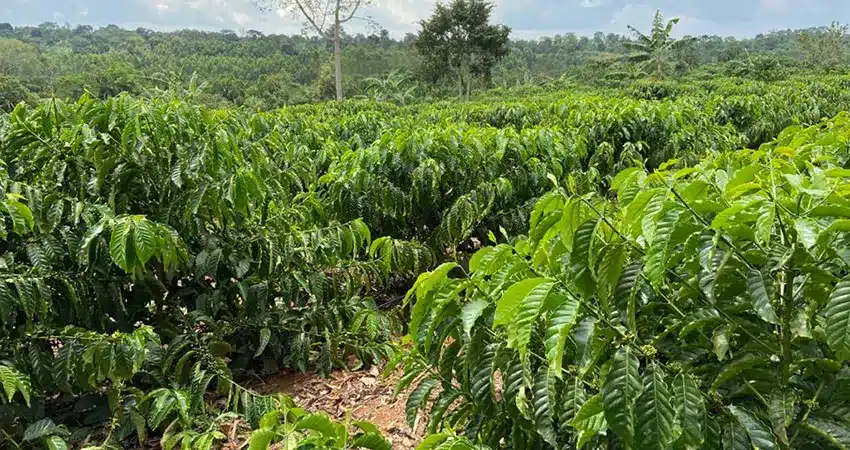
Sample Roasting: A Step-by-Step Guide
Consistency is essential in sample roasting, but the timing of the first crack can vary from batch to batch. To ensure optimal results, use this guide to determine the ideal moment to end your roast based on how long it took to reach the first crack.
